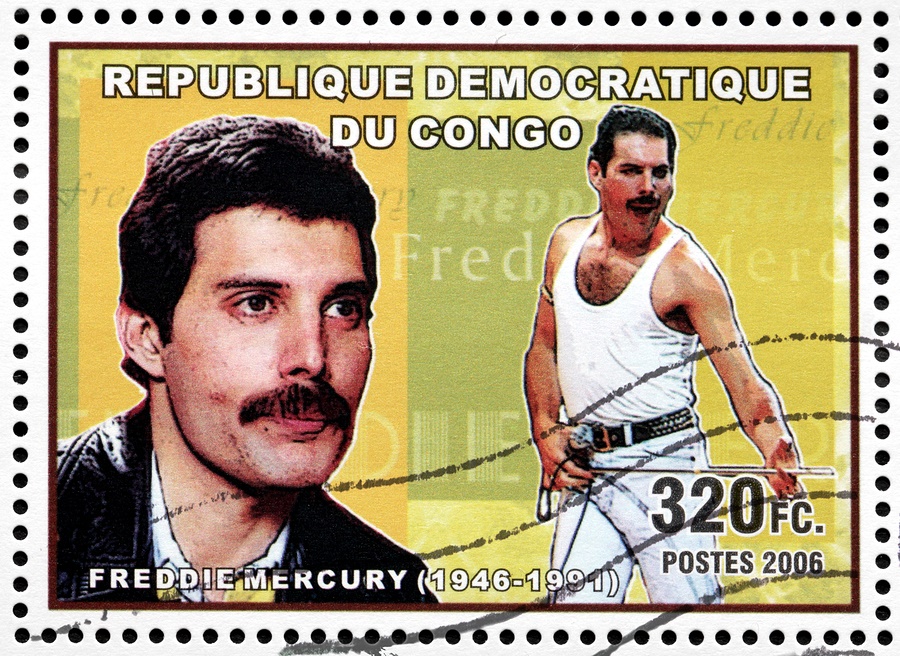Freddie Mercury Nationality: Unveiling The Iconic Singer's Heritage
Freddie Mercury, one of the most celebrated figures in the history of music, is often remembered for his electrifying performances and unmatched vocal range. However, when it comes to Freddie Mercury's nationality, there's more to the story than meets the eye. His cultural background and heritage played a significant role in shaping the artist he became. In this article, we delve deep into the life of Freddie Mercury, uncovering the truth behind his national identity and exploring how it influenced his career.
Born into a world that would eventually be captivated by his talent, Freddie Mercury's journey is one of resilience, passion, and cultural fusion. Understanding his nationality helps us appreciate not only his music but also the diverse experiences that fueled his creative genius. As we explore his roots, we uncover a fascinating story that transcends borders and celebrates the global nature of art and music.
This article aims to provide a comprehensive look at Freddie Mercury's nationality, supported by historical facts, personal anecdotes, and expert insights. Whether you're a long-time fan or new to his music, this exploration will deepen your appreciation for the man behind the legend. Let’s dive into the details.
Table of Contents
- Biography: A Glimpse into Freddie Mercury's Life
- Freddie Mercury Nationality: An Overview
- Where Was Freddie Mercury Born?
- Freddie Mercury's Parents: Key Influences
- Exploring Freddie Mercury's Citizenship
- Cultural Heritage: Parsi Roots and Beyond
- How Nationality Shaped Freddie Mercury's Music
- Debunking Myths About Freddie Mercury's Nationality
- Legacy: Celebrating Freddie Mercury's Global Influence
- Conclusion: Understanding Freddie Mercury's National Identity
Biography: A Glimpse into Freddie Mercury's Life
Freddie Mercury, born Farrokh Bulsara on September 5, 1946, was more than just a singer—he was a cultural icon whose life spanned continents and cultures. Below is a detailed look at his early years and the milestones that defined his career.
Personal Information at a Glance
| Full Name | Farrokh Bulsara |
|---|---|
| Date of Birth | September 5, 1946 |
| Place of Birth | Zanzibar, Tanzania |
| Parents | Bomi and Jer Bulsara |
| Profession | Singer, Songwriter, Record Producer |
| Nationality | British (naturalized) |
Freddie Mercury's life was marked by a blend of cultures and experiences that shaped his unique identity. From his early days in Zanzibar to his rise as a global superstar, Mercury's journey is one of inspiration and triumph.
Freddie Mercury Nationality: An Overview
Freddie Mercury's nationality is a topic of intrigue for many fans and historians alike. While he became a British citizen later in life, his origins are deeply rooted in the Parsi community of India. This dual heritage played a crucial role in his identity and worldview.
Mercury's parents, Bomi and Jer Bulsara, were Parsis from Gujarat, India, who worked for the British government in Zanzibar. This multicultural upbringing provided him with a rich tapestry of traditions and values that influenced his music and persona.
Where Was Freddie Mercury Born?
Freddie Mercury was born in Zanzibar, Tanzania, a vibrant island nation known for its diverse population and cultural influences. His birthplace reflects the global nature of his upbringing and the varied experiences that shaped his artistic vision.
During his childhood, Mercury's family moved to India, where he attended St. Peter's School in Panchgani. This period in his life was instrumental in shaping his musical talents and exposing him to Western classical music, which would later inspire his compositions.
Freddie Mercury's Parents: Key Influences
Early Life and Parental Influence
Freddie Mercury's parents, Bomi and Jer Bulsara, were instrumental in shaping his early life and values. As Parsis, they instilled in him a strong sense of community, tradition, and resilience. Their influence extended beyond cultural teachings, encouraging Mercury to pursue his passion for music and creativity.
- Bomi Bulsara: Freddie's father, a cashier for the British government, provided stability and support for the family.
- Jer Bulsara: His mother, a homemaker, nurtured Freddie's artistic inclinations and offered emotional guidance.
Exploring Freddie Mercury's Citizenship
Freddie Mercury became a naturalized British citizen, a decision that reflected his deep connection to the UK, where he spent much of his adult life. This citizenship allowed him to contribute significantly to British music culture and solidify his place in history as one of the nation's most beloved artists.
His transition to British citizenship also symbolized his ability to bridge cultures and bring people together through his music. Mercury's story is one of acceptance and integration, proving that nationality is just one facet of a complex identity.
Cultural Heritage: Parsi Roots and Beyond
Freddie Mercury's Parsi heritage is a vital part of his identity. The Parsi community, known for its rich traditions and contributions to art, science, and business, provided Mercury with a strong foundation in values such as perseverance and innovation.
His Parsi roots influenced his music in subtle yet profound ways. Themes of resilience, unity, and celebration often found their way into his compositions, reflecting the cultural richness of his upbringing.
How Nationality Shaped Freddie Mercury's Music
Freddie Mercury's nationality played a pivotal role in shaping his musical style and themes. His multicultural background allowed him to incorporate diverse elements into his work, creating a sound that resonated with audiences worldwide.
- Eastern Influences: Mercury's Indian roots introduced him to classical Indian music, which occasionally surfaced in his compositions.
- Western Exposure: Growing up in Zanzibar and later moving to the UK exposed him to a wide range of musical genres, from rock to opera.
- Cultural Fusion: His ability to blend different musical traditions made him a pioneer in the world of rock music.
Debunking Myths About Freddie Mercury's Nationality
There are several misconceptions surrounding Freddie Mercury's nationality. Some believe he was entirely British, while others assume he was Indian. The truth lies in his multicultural heritage, which includes Parsi, Indian, and British influences.
By examining historical records and personal accounts, we can clarify these misunderstandings and appreciate the complexity of Mercury's identity. His journey from Zanzibar to London highlights the fluid nature of nationality in today's interconnected world.
Legacy: Celebrating Freddie Mercury's Global Influence
Freddie Mercury's legacy extends far beyond his music. As a symbol of cultural fusion and acceptance, he continues to inspire generations of artists and fans alike. His nationality, a blend of diverse influences, underscores the importance of embracing one's roots while reaching for global horizons.
Through his music, Mercury broke barriers and challenged stereotypes, proving that art transcends borders and unites people from all walks of life. His story is a testament to the power of diversity and the universal language of music.
Conclusion: Understanding Freddie Mercury's National Identity
In conclusion, Freddie Mercury's nationality is a fascinating blend of Parsi, Indian, and British influences. This multicultural identity shaped not only his music but also his worldview, making him one of the most influential figures in the history of rock music.
We invite you to share your thoughts and reflections on Freddie Mercury's legacy in the comments below. For more articles on music legends and cultural icons, explore our other content and continue your journey of discovery. Thank you for reading, and may Freddie Mercury's music continue to inspire and unite us all.


